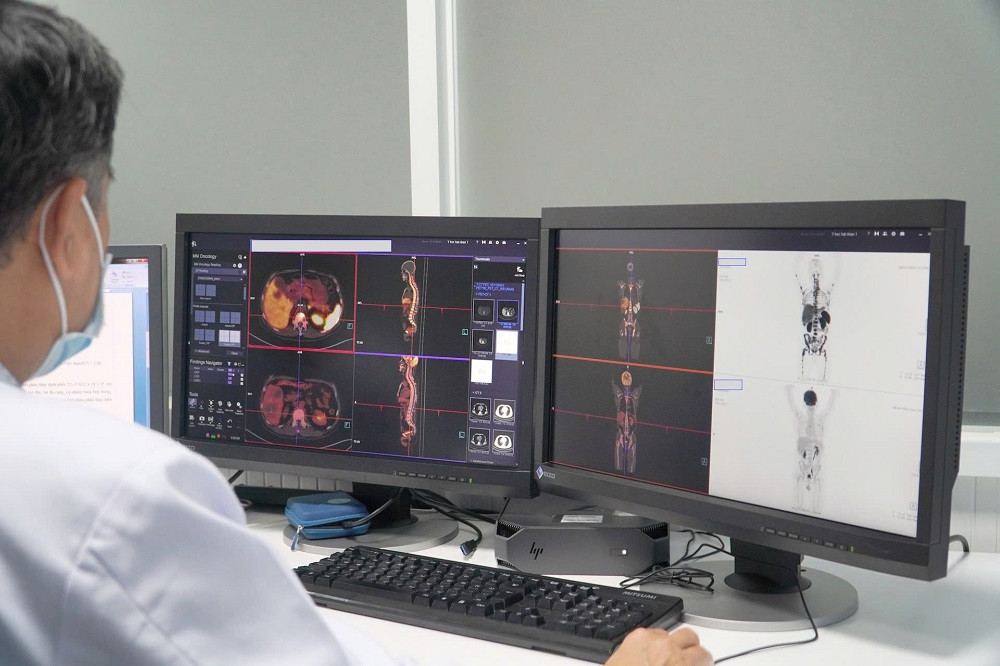The only cyclotron in southern Vietnam, which produces the radioactive tracer 18F-FDG essential for PET/CT scans, has been temporarily shut down for upgrades, leaving patients without access to a critical diagnostic tool.

Located at Cho Ray Hospital in Ho Chi Minh City, the cyclotron has served major hospitals including Cho Ray, Oncology Hospital, and Military Hospital 175 for the past 15 years. However, it has never fully met the growing demand.
The shutdown - expected to last six months - has forced the PET/CT systems at these hospitals to sit idle, disrupting cancer, cardiac, and neurological diagnostics and leaving patients in difficult circumstances.
Dr. Pham Thanh Viet, Deputy Director of Cho Ray Hospital, stated that the upgrade aims to improve long-term supply quality. However, during this transition, the southern region faces a severe shortage of 18F-FDG, forcing some patients to seek scans in northern Vietnam or even abroad. On average, Cho Ray Hospital refers more than 10 patients per day for PET/CT scans.
As a temporary solution, patients may undergo CT or MRI, but these methods do not match the diagnostic effectiveness of PET/CT in many cases.
According to leaders at the Oncology Hospital, they perform over 10 PET/CT scans daily. The hospital is proposing a public investment project to build its own cyclotron facility to reduce reliance on Cho Ray.
The shortage of 18F-FDG is not new. In 2024, many hospitals in Ho Chi Minh City faced similar difficulties. With a half-life of only 110 minutes, 18F-FDG must be used immediately after production, making long-distance transportation impractical.
Currently, the only other licensed producer in Ho Chi Minh City is Rang Dong Medical Joint Stock Company. However, despite having the most advanced radiopharmaceutical production system in Southeast Asia, their plant in Thu Duc City remains non-operational due to legal and regulatory hurdles. The Ho Chi Minh City Department of Health has called on authorities to urgently resolve the issue and allow the plant to begin operations.
PET/CT is a sophisticated imaging technology combining PET and CT scans. It detects cancerous lesions and metastasis early and evaluates treatment efficacy. However, the procedure is costly - ranging from 20 to 35 million VND ($790–$1,380 USD) per session - and carries a high level of radiation exposure.
According to Globocan 2022, Vietnam reported 150.8 new cancer cases per 100,000 people, with 120,184 cancer-related deaths.
Among men, liver cancer had the highest incidence (19.7%), followed by lung cancer (17.7%) and stomach cancer (11%). In women, breast cancer was most common (28.9%), followed by lung cancer (8.7%) and colorectal cancer (8.7%).
Phuong Thuy